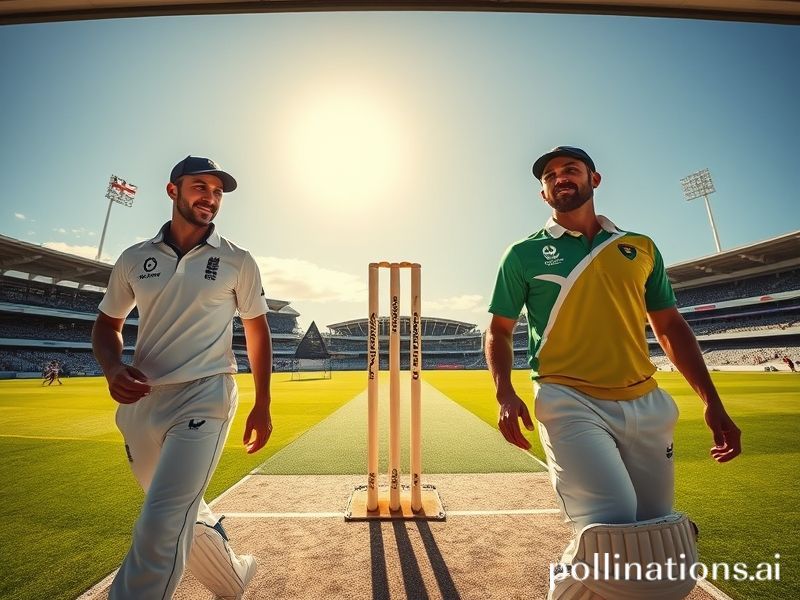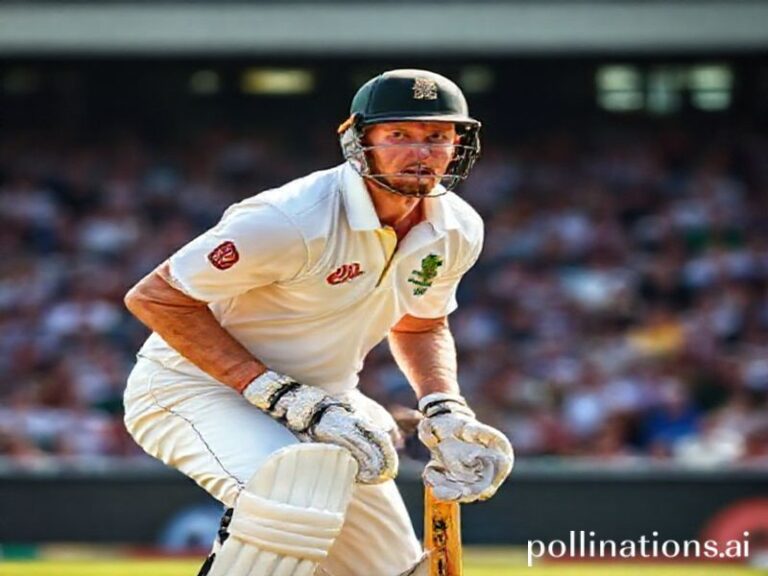eng vs sa
England vs South Africa: Two Nations, One Cricket Match, and the Illusion of Global Significance
By Our Correspondent Who’s Learned to Love the Absurd
London—For 48 hours this weekend, the planet’s most urgent diplomatic crisis is not Ukraine, Gaza, or the slow-motion implosion of the Antarctic ice shelf, but whether a red leather sphere can be persuaded to swing both ways on a patch of grass in North London. Welcome, dear reader, to Eng vs SA, the latest installment of a 140-year grudge match that somehow convinces nine time zones to synchronize their caffeine intake and pretend the result will alter the balance of power.
The geopolitical stage is deliciously crowded. England arrives nursing the delusion that a World Cup win in 2019 bought them a decade of moral authority, like a trust-fund kid who believes philanthropy is an Instagram filter. South Africa, meanwhile, strolls in with the weary dignity of a nation that has spent thirty years explaining that it is more than Table Mountain and a viral Oscar Pistorius documentary. Both sides cling to the contest the way a drowning man clutches a bar of soap—slippery, sudsy, and ultimately futile, but it feels nice in the hand.
Across the world, the match is consumed in fragments. In Mumbai call centers, customer-service agents toggle between irate Americans and a cricketing livestream muted to a whisper. In Dubai’s gold souks, traders hedge dirhams on the fall of the next wicket the way Renaissance Venetians wagered on galley races. Meanwhile, in a Wisconsin sports bar where the TV is accidentally tuned to Willow, three undergraduates stare at the screen like anthropologists discovering a new cargo cult. To them, the sight of grown men applauding politely after a dot ball is either a masterclass in repressed emotion or proof that empire never died, it just learned to clap in moderation.
The historical subtext is impossible to avoid. This is the rivalry that once paused for the Boer War and resumed before the smoke had cleared, as if to say, “Right, now that we’ve settled genocide, let’s see about this lbw decision.” Modern spectators prefer their imperial nostalgia wrapped in LED advertising for crypto exchanges and airlines you’ve never heard of. The English Cricket Board still prints the imperial measurements on the boundary rope—68.58 meters, because nothing says “post-colonial progress” like refusing to go metric.
On the field, the stakes are simultaneously monumental and microscopic. For England’s captain, a loss means tomorrow’s back pages will question his upbringing, his choice of wristwatch, and possibly the structural integrity of his marriage. For South Africa’s skipper, defeat merely confirms what every South African already knows: that fate is a sadistic playwright and hope is a cruel teaser trailer. Between them stands the umpire, a man whose only armor is a white coat and a conviction that human eyesight is adequate to adjudicate a projectile traveling at 150 kph—an optimism not seen since the last climate summit.
And yet, the spectacle works. Not because cricket cures poverty or lowers carbon emissions, but because humans require periodic reminders that failure can be slow-motion and dignified, not merely instant and algorithmic. When a South African fast bowler yorks an English opener, the sound of timber echoes from Lagos to Lahore like a cosmic rimshot. When an English batter reverse-sweeps for six, traders in Singapore hedge funds involuntarily punch the air, proving that derivatives traders are only one six-hit away from remembering they once had playground dreams.
By Sunday evening, one anthem will sound slightly smugger, one dressing room will smell of champagne and recrimination, and 1.5 billion people will reset their emotional bandwidth for Monday’s grind. The planet will not tilt off its axis, though your social-media feed will briefly insist otherwise. We will file away the highlights under “harmless tribalism” and return to the serious business of ruining the biosphere.
But for now, England versus South Africa is the perfect metaphor for international relations: a contrived contest on manicured grass, governed by archaic rules, sponsored by conglomerates nobody likes, and watched by nations who pretend the outcome matters more than the existential dread waiting in their inboxes. Pass the tea, or the rooibos, depending on which flag you’re flying. Either way, the kettle’s whistling, and the kettle doesn’t care who wins.







